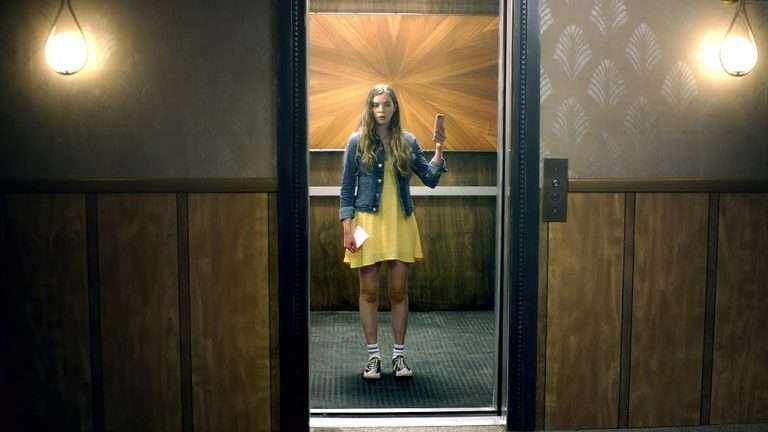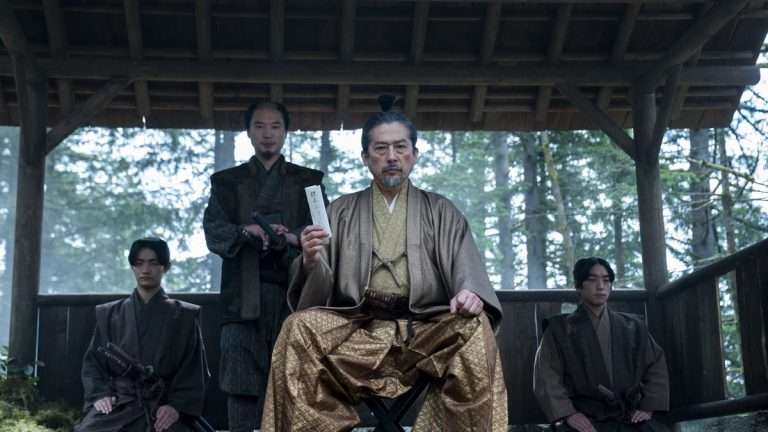Three new students receive scholarships at Hampton International School, which leads to upsetting and breaking an equilibrium in the Netflix series ‘Class’ created by Ashim Ahluwalia, Raghav Kakkar, and Kashyap Kapoor, an Indian remake of Elite (a 2018 Spanish series). ‘Class (Season 1)’ is eager to offer insight into the class battle that rages in the shadows of every major Indian metropolis and whose ambers sometimes sear the social fabric. The eight-episode series takes it as a burden that it is unable to handle.
A wannabe influencer named Balli Sehrawat (Cwaayal Singh) emphasizes his physicality and self-assurance. A Dalit named Dheeraj Valmiki (Piyush Khati) falls hard for the complicated and broken Suhani Ahuja (Anjali Sivaraman). A Muslim girl from an orthodox family named Saba Manzoor (Madhyama Segal), who impresses with her intellectual prowess and straightforwardness, rounds up the trio who, because their school was set on fire by Ahuja on purpose, make their way to the elite school in South Delhi. From the beginning, the other pupils begin to look down on them, bullying their accents and mocking their dreams. But everything abruptly shifts, and the lives of those three students and the brats become entangled. Nevertheless, the “outsiders,” i.e., the three students, bring with them a sense of vulnerability about who they are and how they came to be thrown among the pounce-ready wolves.
The series starts with giving us a glimpse at the murder of Suhani and her lover Dheeraj sitting at a distance, not knowing what to do but shocked at the tragic incident. The police investigation, thus, leads us through the whole series. Unfortunately, the cops in ‘Class’ are only used as plot devices to guide us through the twisted lives of the rich and poor. They are not real characters.
‘Class’ focuses on five families: The Dalit family (Dheeraj, Neeraj, and his alcoholic father), the Ahujas, the Kalras; Ahuja’s business associates, Saba and her brother Faruq (Chintan Rachchh), and the Sanghvis. Through harsh social media and chat rooms, secrets spill out of closets, adding to the shame and terror; friends turn into enemies; betrayed lovers turn vindictive; and violence is a frequent visitor.
One must appreciate the director Ashim Ahluwalia for creating an immersive environment of the wealthy and poor and for portraying the long-standing biases ingrained in Indian culture. What was also impressive was the color scheme which was shiny and cold for affluent residences and more intense and gritty for less affluent areas. The sound design team, particularly, deserves mention for its work with background classroom chatter, ambient sounds, and party atmospheres.
‘Class’ explores themes like the wealth gap, gender, sexuality, jealousy, insecurity, teenage infatuation, greed, and caste. These are a bold range of topics for a programme, but the show never goes so far as to wink at the viewers. Not taking its subjects seriously, it passes by them through flamboyant pulp-inspired careless narrative. There is a mention of everything from casteism and homosexuality to migration from Kashmir and Islamophobia, but it is unable to examine these topics in-depth.
What stayed with me amidst the tragedy that happened with Suhani are those fine moments where each of them are trying to safeguard their families no matter what extent they will have to go. Although the scene in which the principal asks Saba if she will wear the hijab to school regularly seemed to speak of the school as being the same for all religions, classes, and creeds, it appeared a bit forced.
A scene where Veer Ahuja (Zeyn Shaw) explains to Saba that he will get better, but Saba makes her stand clear was one of my favorite scenes. Right from the start, Saba looked confident, affirmative, and brave. The special moments between Dhruv (Chayan Chopra) and Faruq reminded me of ‘Cobalt Blue,’ ‘Heartstopper,’ and ‘Young Royals.’ Only, I found some of the conversations and scenes a bit regressive when it comes to ‘coming out’ and ‘acceptance’ of a gay person. Well, homophobia is still a thing in India, so let’s just wait for it to change.
All in all, a lot of nuanced layers are included in ‘Class,’ which seeks to depict adolescents rebelling and demanding their social rights. The gullibility of those in positions of authority. But to top it all off, Ashim Ahluwalia makes an effort to demonstrate how amusing they actually are while endorsing such horrible motives. He almost parodies the wealthy but refrains from highlighting their depravity in the process.








![Varudu Kaavalenu [2022] Review: An Absolutely Unremarkable Rom-Com](https://79468c92.delivery.rocketcdn.me/wp-content/uploads/2022/01/Varudu-Kaavalenu-2-768x432.jpg)